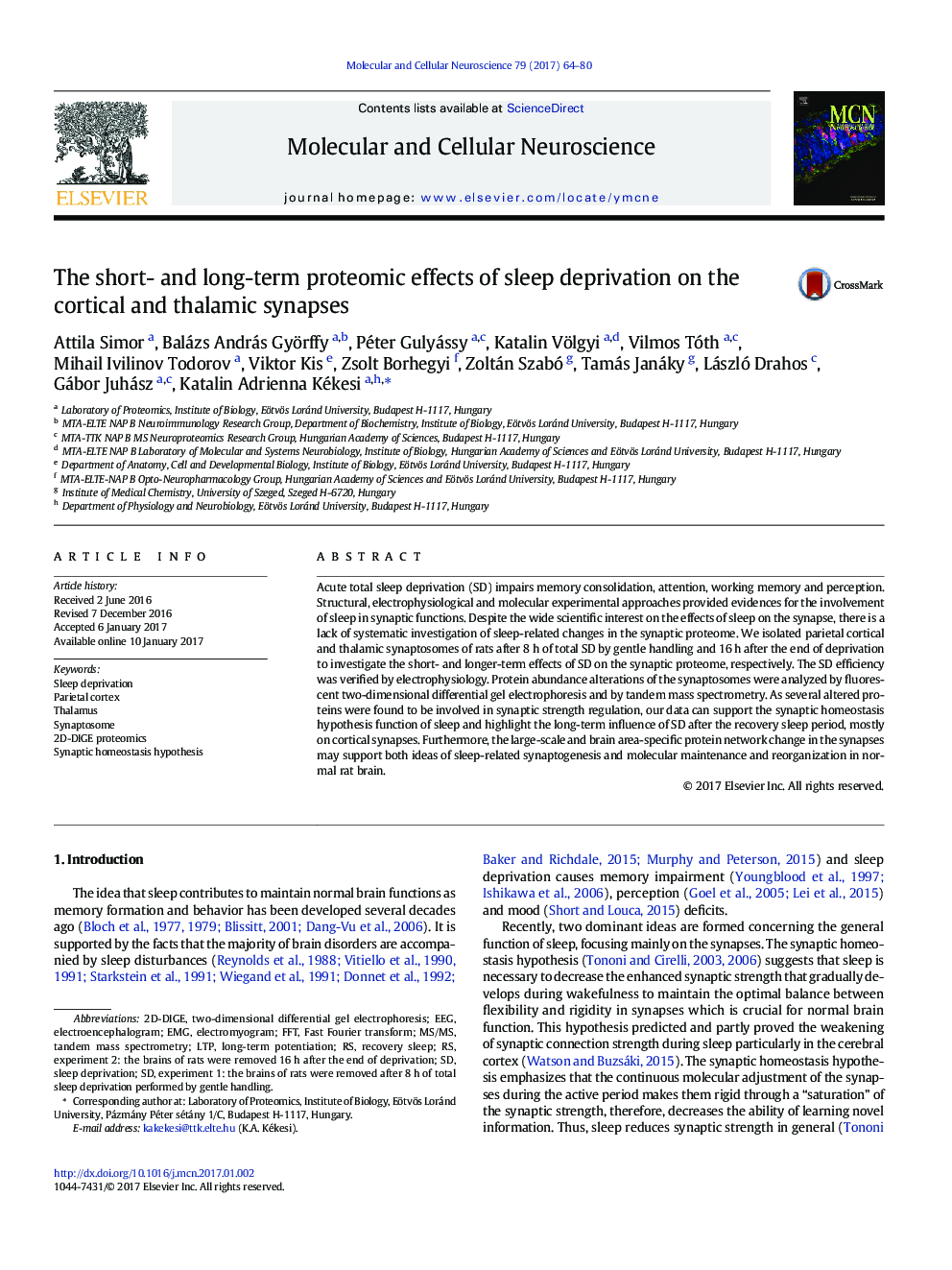| Article ID | Journal | Published Year | Pages | File Type |
|---|---|---|---|---|
| 5534435 | Molecular and Cellular Neuroscience | 2017 | 17 Pages |
â¢The first synaptic proteomic study related to the effects of sleep deprivation.â¢The parietal cortex is more affected by sleep deprivation than the thalamus.â¢The long-term effects of sleep deprivation are unexpectedly extensive.â¢Our data support the synaptic homeostasis hypothesis of sleep.
Acute total sleep deprivation (SD) impairs memory consolidation, attention, working memory and perception. Structural, electrophysiological and molecular experimental approaches provided evidences for the involvement of sleep in synaptic functions. Despite the wide scientific interest on the effects of sleep on the synapse, there is a lack of systematic investigation of sleep-related changes in the synaptic proteome. We isolated parietal cortical and thalamic synaptosomes of rats after 8Â h of total SD by gentle handling and 16Â h after the end of deprivation to investigate the short- and longer-term effects of SD on the synaptic proteome, respectively. The SD efficiency was verified by electrophysiology. Protein abundance alterations of the synaptosomes were analyzed by fluorescent two-dimensional differential gel electrophoresis and by tandem mass spectrometry. As several altered proteins were found to be involved in synaptic strength regulation, our data can support the synaptic homeostasis hypothesis function of sleep and highlight the long-term influence of SD after the recovery sleep period, mostly on cortical synapses. Furthermore, the large-scale and brain area-specific protein network change in the synapses may support both ideas of sleep-related synaptogenesis and molecular maintenance and reorganization in normal rat brain.
Graphical abstractDownload high-res image (155KB)Download full-size image
